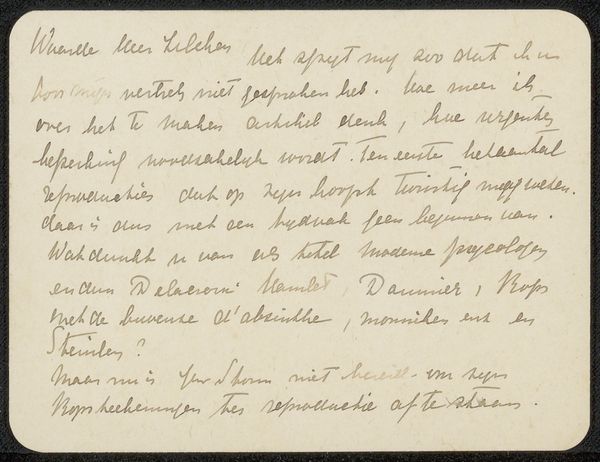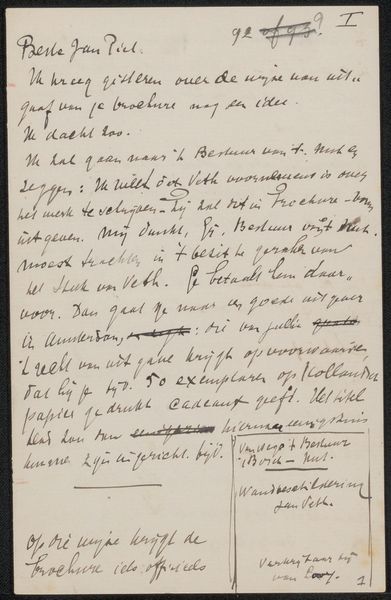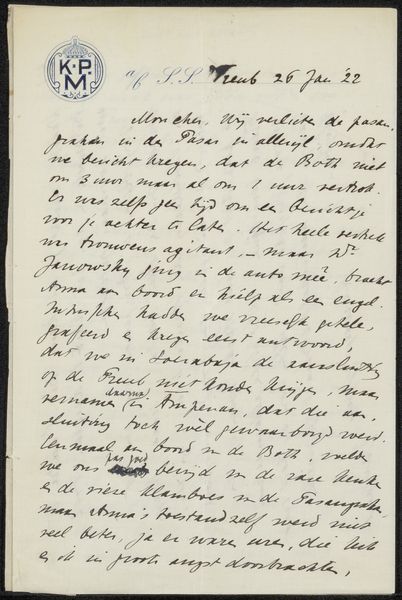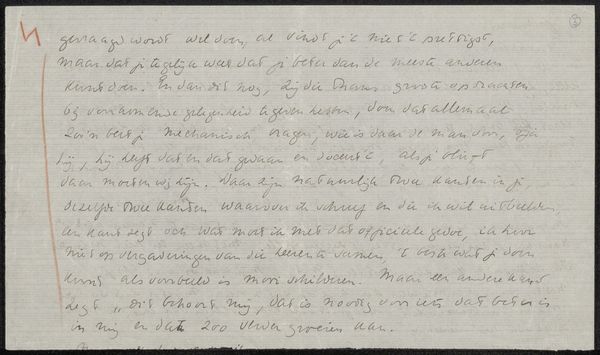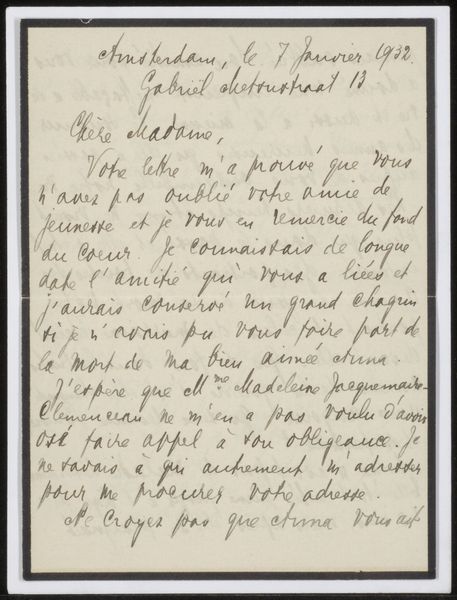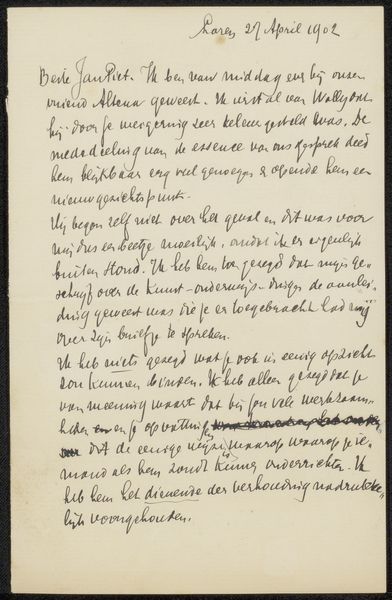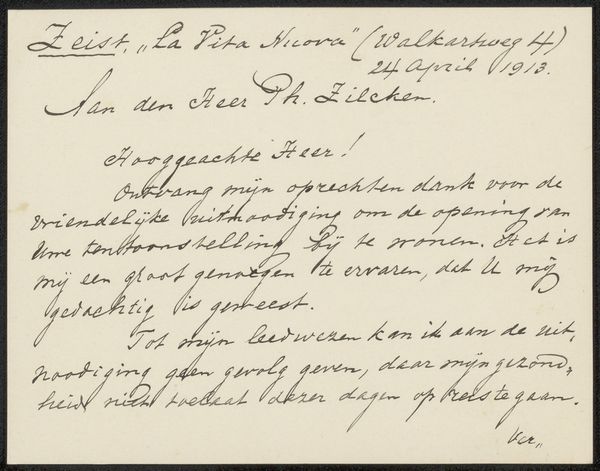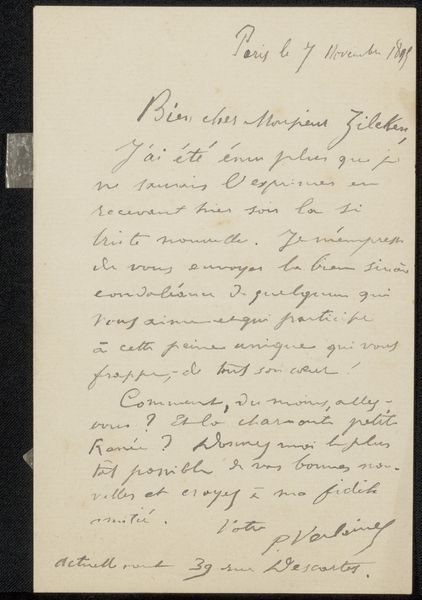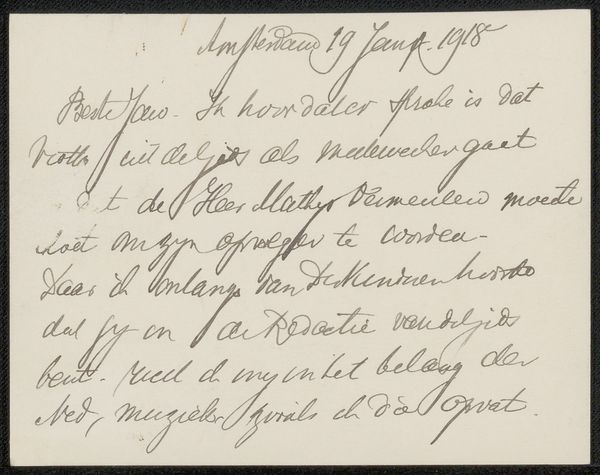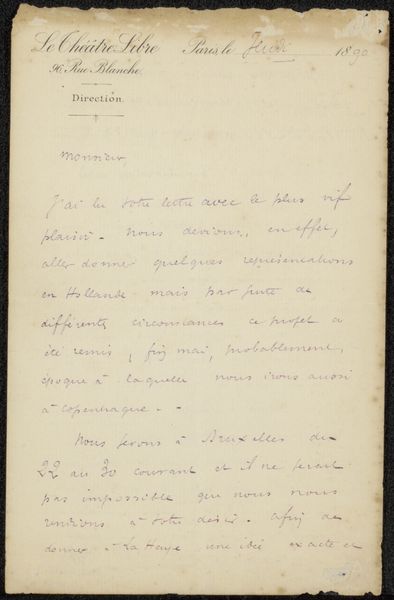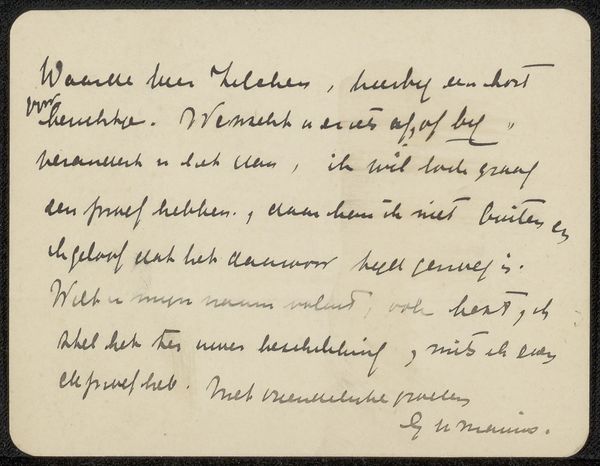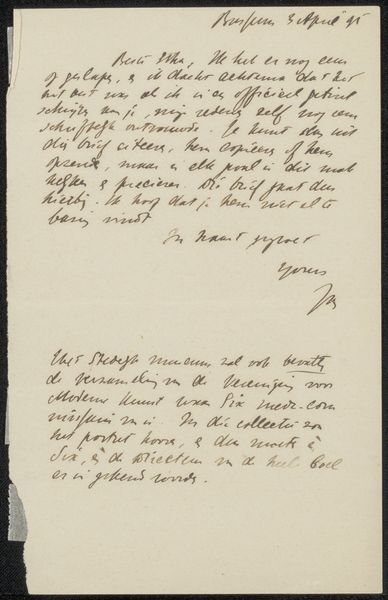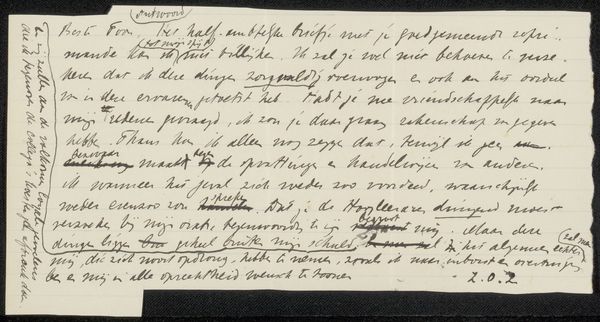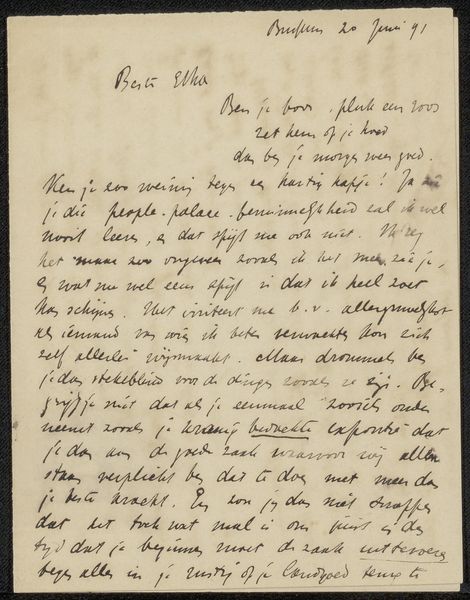
drawing, paper, ink, pen
#
portrait
#
drawing
#
comic strip sketch
#
hand-lettering
#
old engraving style
#
hand drawn type
#
hand lettering
#
paper
#
personal sketchbook
#
ink
#
hand-drawn typeface
#
pen-ink sketch
#
pen work
#
sketchbook drawing
#
pen
#
calligraphy
Copyright: Rijks Museum: Open Domain
Curator: Welcome. Today, we’ll be discussing "Brief aan Jan Veth" by Antoon Derkinderen, created between 1874 and 1925. This piece utilizes pen and ink on paper, showcasing a unique portrait style through hand-lettering. Editor: Immediately striking is its sketch-like quality—it feels so intimate, like a peek into the artist's personal thoughts jotted down in haste. Curator: Indeed. The composition presents a compelling study in contrasts. Notice the texture created by the ink on the paper. The negative space is just as critical as the marks themselves in establishing the visual weight and direction of the writing. The handwritten style adds a raw, almost vulnerable, feel to what otherwise seems like a formal letter. Editor: From a material perspective, the labor is evident in the density and variation of the ink strokes. Think about the embodied energy and skill needed to create these meticulous letters. We can infer so much about Derkinderen’s working process from the physical residue left on the page. The type of ink and the character of the paper influence the letter, becoming collaborators. Curator: Precisely. Consider also how Derkinderen has chosen to frame his thoughts. The act of handwriting, particularly in the old engraving style evident here, invests the content with additional meaning beyond the words themselves. This calls into question notions of originality versus repetition, doesn't it? Editor: Absolutely. And perhaps even speaks to the value we ascribe to the personal touch, something mass production and print cannot truly replicate. In an age rapidly becoming industrialized, Derkinderen clings to craft and the handmade, literally inscribing his individuality onto this letter. Curator: It's fascinating to examine the semiotic potential embedded in its presentation, from its raw texture to the implied history within each mark, evoking the tradition of scholarly exchange. Editor: This glimpse into Derkinderen’s process encourages me to contemplate labor not merely as toil, but as an intimate act that bestows meaning. Curator: Reflecting upon the piece, it reveals the quiet beauty residing in the act of direct communication, even within the framework of established traditions. Editor: I agree. This examination makes me keenly aware of the power in simply, deliberately putting pen to paper.
Comments
No comments
Be the first to comment and join the conversation on the ultimate creative platform.
